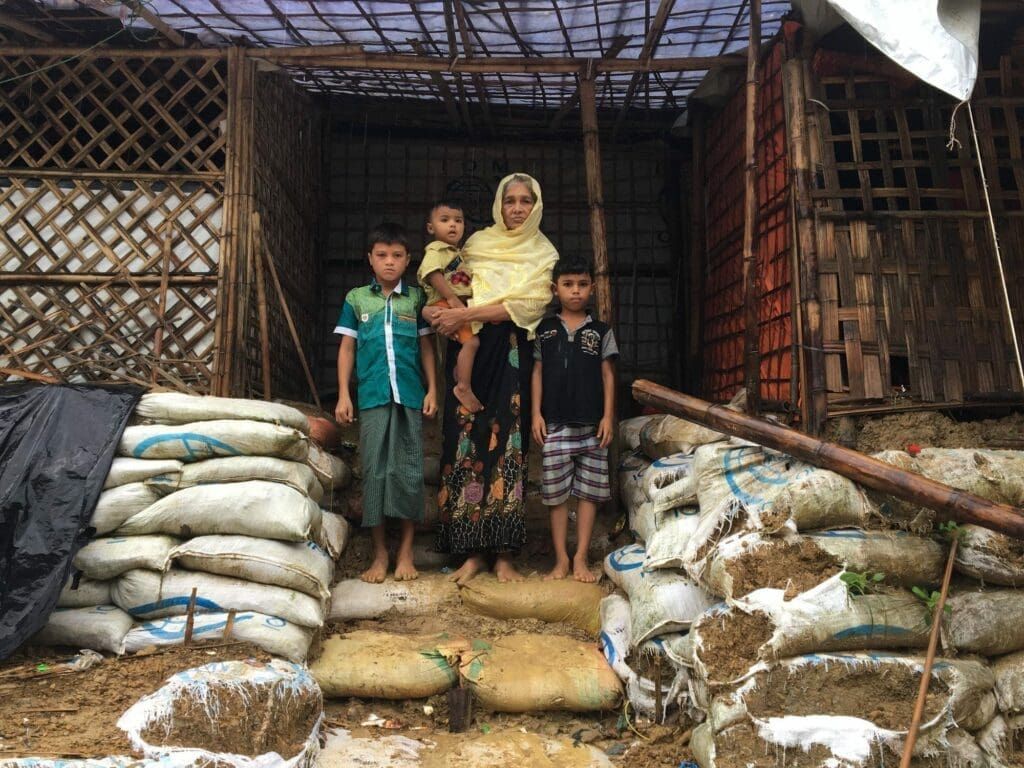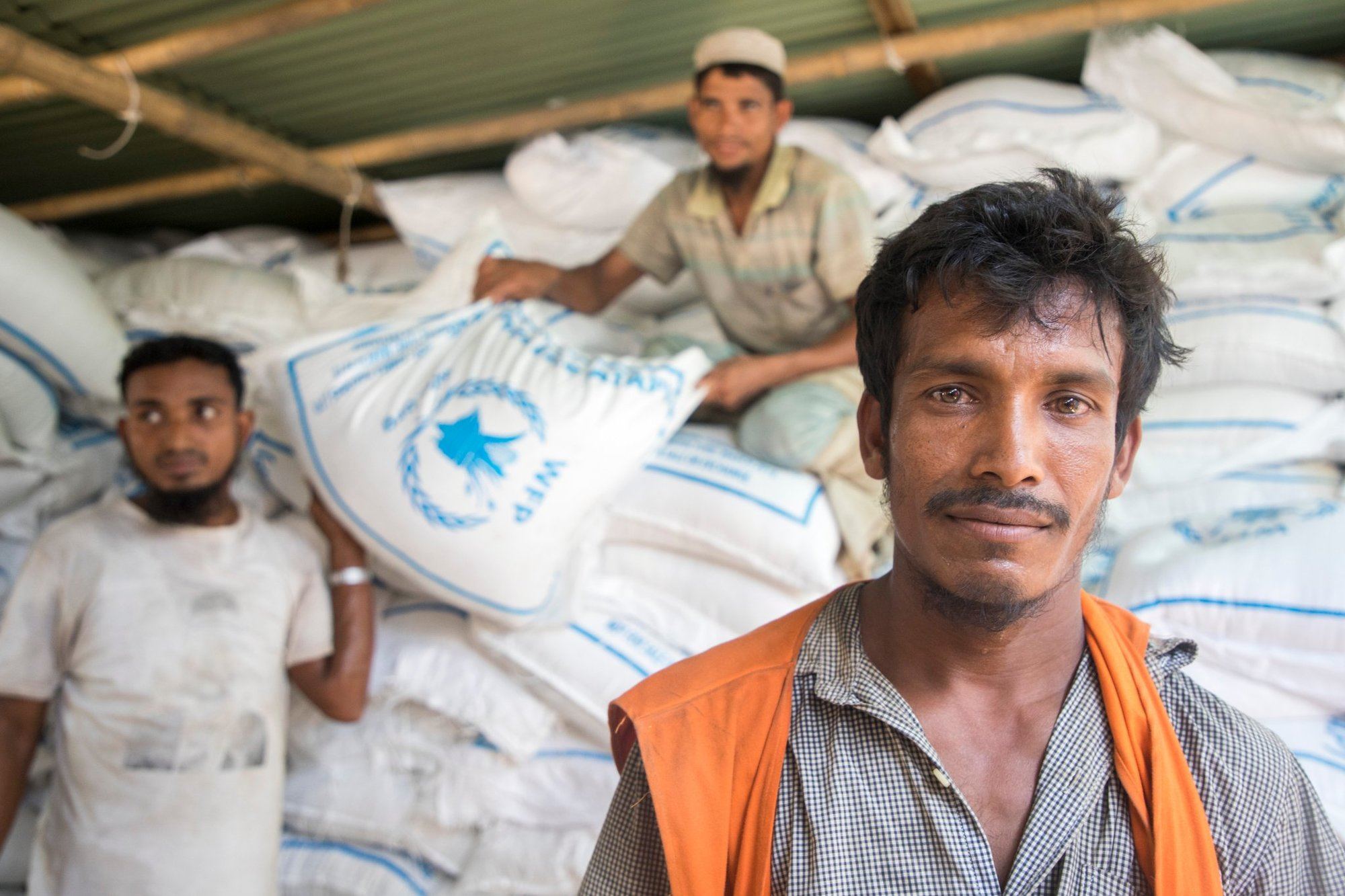When Refugees Arrive, WFP is There

Three months ago, Rabia and her husband fled for their lives.
Long gone was the farm with livestock and the small vegetable garden in Myanmar they had left behind. With their two daughters and son in hand, they found safety in Bangladesh—far away from what had become a daily life of struggle, violence, and persecution.
When they crossed the border, Rabia says she didn’t know what to expect. But much to her surprise, she and her family immediately received a hot meal and nutritious biscuits from the World Food Programme (WFP).
She could only think of one thing: gratitude.
In camps around the world, WFP staff makes sure that refugees have the food and nutrition they need to survive when they first find safety. Because so many who flee conflict do not eat much of anything on their journeys, WFP greets these families with what is often their first nutritious meal in days.
In Bangladesh, WFP is making sure that Rohingya families do not go hungry. Newly arriving Rohingya refugees immediately receive a hot meal to fill their bellies in local transit centers as well as a three-day ration of High-Energy Biscuits to restore critical vitamins and minerals to their bodies.
As soon as these refugees are registered inside the camps, WFP provides them with monthly food distributions including rice, lentils, and vegetable oil. In May 2018, WFP provided more than 850,000 Rohingya refugees with lifesaving food assistance.
Now, as the heavy rains of the monsoon season start, floods and landslides are endangering refugees’ access to this assistance. That’s why Rohingya porters like Nurul are working with WFP to carry food directly to the homes of mothers, children and the elderly living in harder-to-reach areas of the camps.
“As long as we are here, I will help these people get their food at their doorstep,” Nurul said. “They become happy when they see the food and that makes me happy.”

WFP
To help porters like Nurul, WFP engineers are doing everything possible to maintain access to the camps during the monsoon season. This includes working closely with their partners to prepare additional land for safe relocations, strengthen roads, build bridges, fortify embankments and clear drainage canals.




